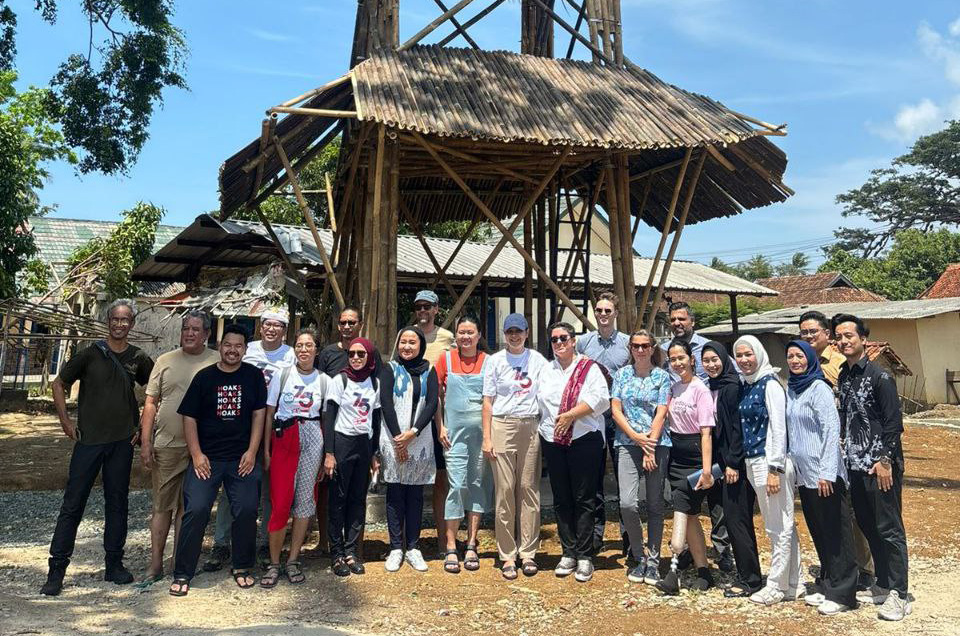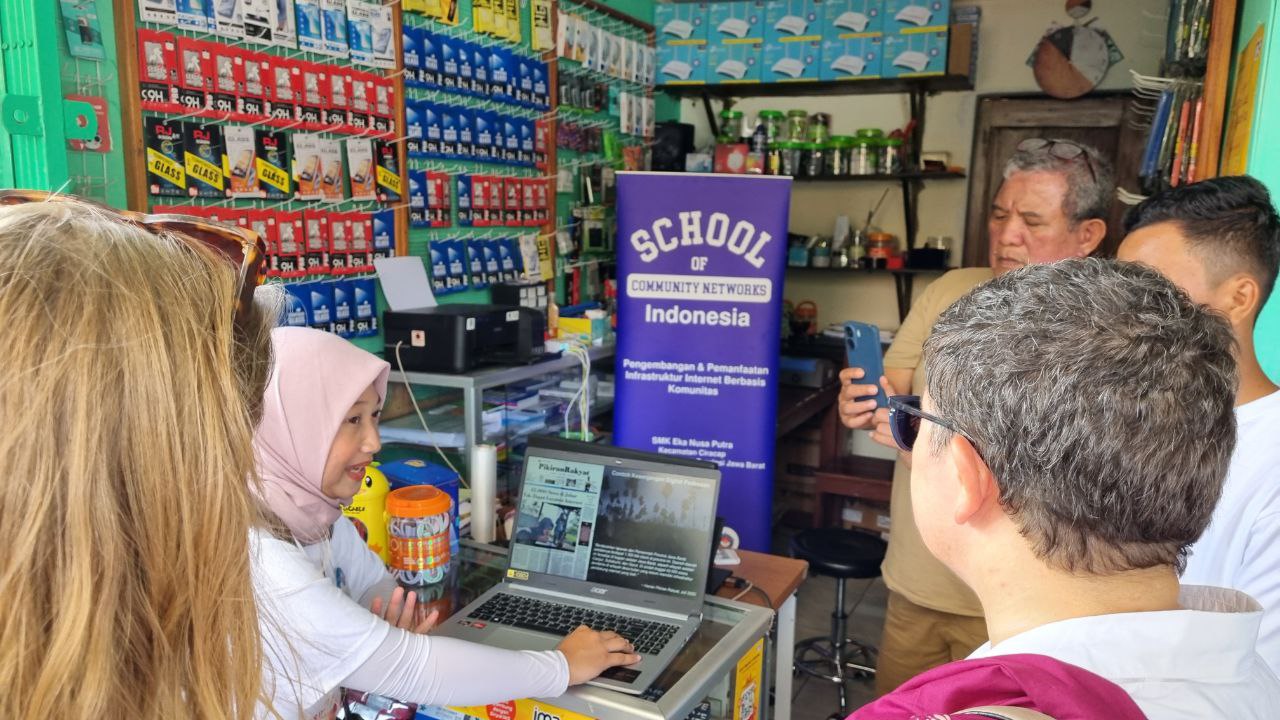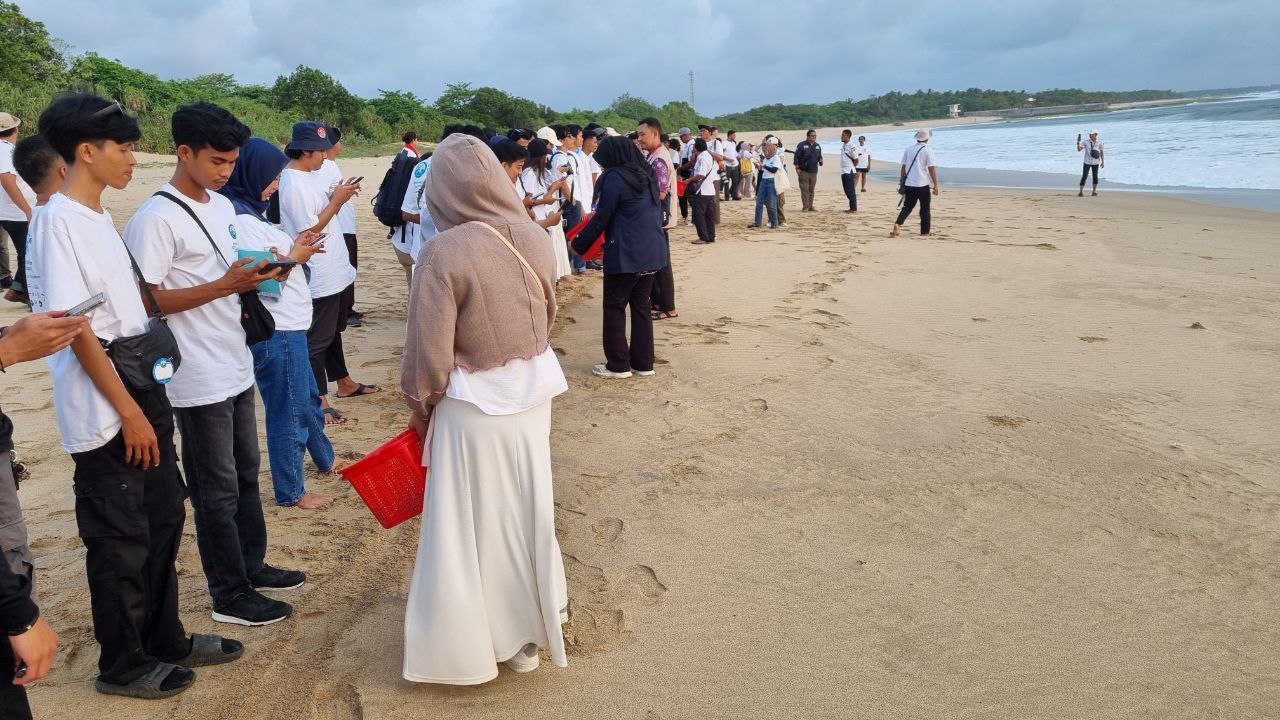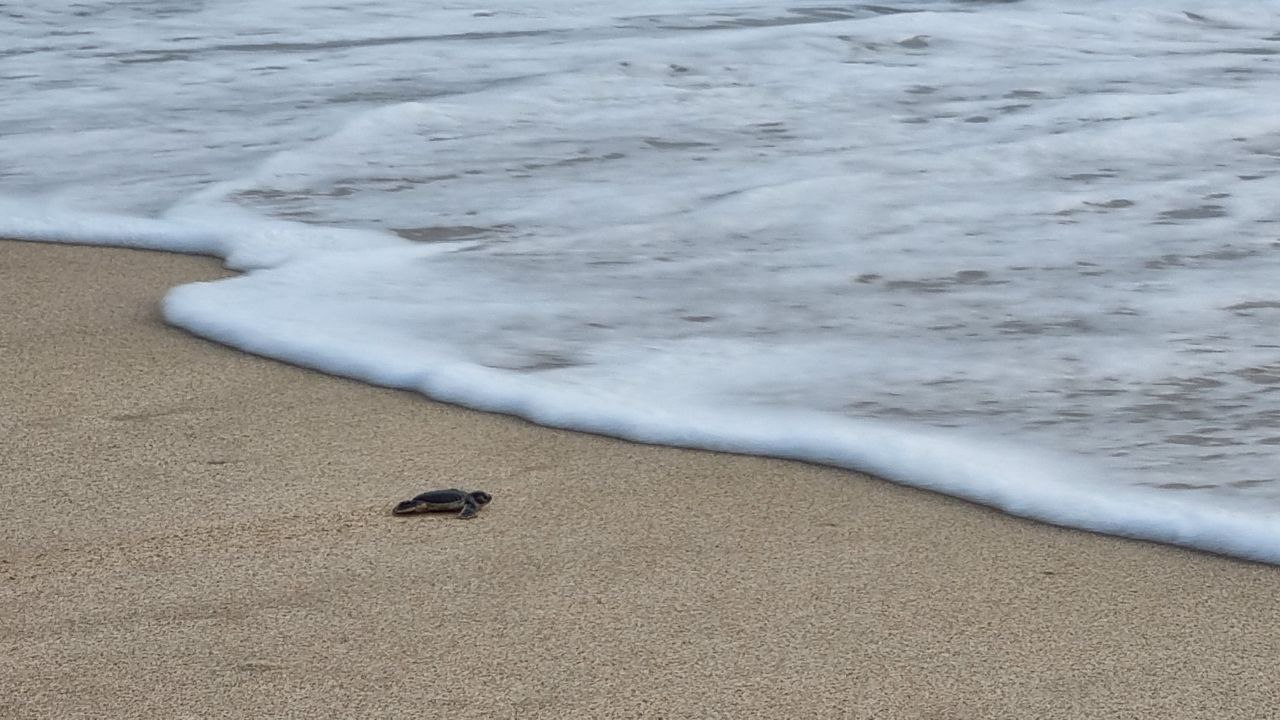
The mother turtle crawls onto the beach at night. Behind a sand dune, she starts digging a hole with her hind legs. Once it is deep enough, the sea dweller lays dozens of eggs. That is her gift, a tremendous effort, we can hear her panting. Then, she carefully covers her treasure with sand and soon after, the amazing creature returns to the Indian Ocean and vanishes…
We witnessed this scene during this year’s edition of the Rural ICT Camp in Indonesia, a yearly gathering that brings together diverse stakeholders to discuss and test community-centred solutions for meaningful connectivity, local services and innovations for the livelihood of rural populations. The event was organised by the NGO Common Room and many other stakeholders and supporters like the Digital Access Programme of the United Kingdom’s Foreign, Commonwealth & Development Office (FDCO) and the Association for Progressive Communications (APC). People from Indonesia’s many islands, as well as international guests, found their way to the Ciracap district in West Java, eager to listen, learn and share what is happening in their respective communities and networks.

Like the life cycle of the green sea turtle, community work often begins quite intimately and unnoticed. Sometimes it has to, like the first installations of Wi-Fi antennas in West Java during COVID, when equipment was brought in from Bandung on side roads. “In 2020, people were much in need of vital information but had to stay at home during the lockdown,” remembers Gustaff H. Iskandar, founder of Common Room. “This was a spooky place back then,” says Gustaff. The streets were deserted while his team helped the local population setting up towers, access points and routers. Hard to imagine, as we walk along roads full of people, flocking to the pop-up stage of the Rural ICT Camp in Ujung Genteng Beach, a small coastal resort.
…not so at night. Once the mother turtle has gone, guards of the Turtle Beach Conservation Centre carefully start digging for the eggs and bring them to a fenced breeding beach. This has become the only way to guarantee the reproduction of the endangered species…
Connectivity initiatives on the community level also need care, as we learn during the panel discussions and work groups during our stay. To collectively construct digital territories involves many skills that have to coalesce and complement each other. Digital inclusion needs to happen in a safe environment of trust. Digital transformation has to be sustainable to not lead to frustrations, new inequalities and exclusion or to become the next e-waste layer of top-down technology policies.

We meet the first generation that completed the National School of Community Networks, a capacity-building initiative guiding collective efforts to create community networks in five countries of the Global Majority, including Indonesia. One of the graduates, a teacher from a nearby village, leads us into the back room of what resembles a tiny electronics store at first glance. On the ground sits a blinking server assemblage, handling over 300 internet access points in the region, a constellation that has mushroomed from just one public hotspot, set up two years ago in a local school. “We reached the break-even point four months ago,” the teacher proudly explains to the crowd. “Now we are reinvesting the revenues to further improve our service.” The social enterprise offers a better and cheaper service than commercial providers, based on a business model that understands the economic realities of the population and involves a team of village technicians who were trained by the project. Many homes, schools and businesses rely on this community-centred model, among them the Turtle Beach Conservation Centre.
…where next to the breeding places, a team of volunteers and staff members receive daily visitors. They come to learn about the ways of the turtle and can have a first-hand experience of best practices of how to support their fragile coming into the world…
Today the site hosts yet another attraction, a hands-on workshop on sensors. Small groups of people have gathered in the shadow of buildings and trees, wrestling with cables and the executing of test scripts to turn on some LEDs. Geologically speaking, Indonesia is a more than dynamic country. During our stay we hear stories about regions where the soil spontaneously liquefies and where tsunamis hit, and we even experience a minor earthquake (4.9 on the Richter scale) during one of the evening sessions of the camp. Preparedness and resilience depend significantly on informed agency at the community level. Monitoring the environment and remaining responsive in a crisis situation is key. And here is where the sensors come in.
We first see them in action on top of a beautiful 10-metre high bamboo tower – the structure itself a co-design that brings together local knowledge, expertise from the Institut Teknologi Bandung and locally grown resources. The sensors are part of a weather station that measures the local temperature and moisture, providing information on the local micro climate, useful as “actionable information” for local farmers but also valuable data that is gathered on an open-source platform. Further sensor types and purposeful usage of the data sets can improve the monitoring in times of progressive climate change and lay the ground for needs-based internet of things (IoT) and AI approaches – with the communities in control of their information and infrastructure. Admittedly, from our tinkering with an Arduino board to an IoT weather station, there is still a ways to go, but the ground is prepared for participatory local services.
Talking about participation: several of the sensor tinkering groups are led by women. The same morning, a solidarity circle, facilitated by the regional gender coordinator of the Local Networks Initiative (LocNet) in Asia, Cathy Tiongson, had provided a much-appreciated opportunity for women to share personal and professional experiences related to the work in and with communities as well as with digital technologies. Similar to the mother turtle, these women have given birth to a circle of solidarity, a commune, and a big hope for their personal and community development. Since 2019 this circle methodology has been adapted and localised in different gatherings and proven to be a safe and stimulating space to spark gender transformative actions. Apparently, the Rural ICT Camp in Ciracap is not an exception.
…other images from this gathering will stay. Sometimes visitors to the Conservation Centre can see the hatching of baby turtles, soft and lively. We are lucky, and at the end of the afternoon we find ourselves carrying the little ones to the waves in red plastic baskets…

To carry each other is not a contradiction when talking about digital territories and meaningful connectivity. During an innovation fair we see people leafing through Common Room’s book series on community networking aspects, including topics like collective administration, cybersecurity and health care. We talk with a frugal tech initiative, combining walkie-talkies with bullhorns as an emergency communications kit. And we are hypnotised by the rasping voice of a traditional puppet master, moving the strings to sensitise and warn the crowd about a virulent problem of many communities, that is only slowly gaining global attention: online gambling. So many ways to support each other to use and adapt technologies for good. The Rural ICT Camp was definitely a space to reassure oneself that no one is, well, an island.
As we watch the last tiny turtle crawl into the white foam of the sea, one fact from earlier presentations comes to mind: only one out of 1,000 will make it. Yet, as soon as the sun goes down, some of their kind, grown-ups with mighty armour, will arrive on the shore…

With insights and ideas from Cathy Tiongson and Gomer Padong.
Photos: Nils Brock
Nils Brock is journalist and media developer with a focus on community media and community networks. He is the coordinator of the open-source digital newsroom Colmena (DW Akademie and partners), co-created and maintained with CSOs in the global South. He also collaborates with the LocNet project on the exploration of local digital services, and is a member of the Global Innovation Gathering (GIG) network.